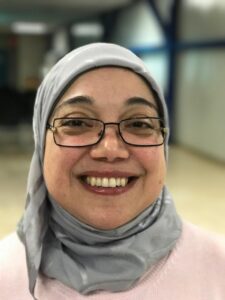NEXT ENROLLMENT
Delivery Format
COURSE LENGTH
TUITION
WEEKLY SCHEDULE
COURSE DESCRIPTION
Knowledge of the Arabic language and its associated cultural practices, values, attitudes, and norms opens more doors to the Muslim world and Arabic-speaking communities than would otherwise be available. In this course, students participate in lectures and interactive learning activities, engaging in the study of more complex grammatical structures and vocabulary in connection with Muslim and Arab cultures, daily life, festivals, poetry, music, stories, issues of identity, ethics, spirituality, and other facets of their culture. They use the structures and vocabulary in listening, speaking, and writing activities. Students explore various styles of writing and genres of literature from different periods of Islamic history through authentic, primary texts. They engage in intensive reading of writings on several cultural topics, enabling them to critically approach and evaluate prose, fiction, and non-fiction through literary theories. Closely reading the sources and engaging in scenario-based discussions would allow students to expand their vocabulary and develop discourse analysis skills, as well as improve their critical thinking abilities. Through independent research, students further their inquiry into the relationship between language and culture and produce and support their own theses.
LEARNING OUTCOMES
Upon successful completion of the course, students should be able to:
-
- describe, compare and contrast a variety of topics using past, present, and future tense verbs (e.g., environments such as city, work, family, study, entertainment, daily routine, school surroundings; past trips, significant historical events, past and present experiences, plans, etc.)
- formulate grammatically (syntactically/morphologically) and semantically correct sentences of increasing length and complexity on various topics.
- demonstrate knowledge of vocabulary drawn from primary and secondary readings and context areas and good control of Arabic structures, grammar, and spelling when expressing their ideas in spoken and written forms.
- interpret factual and inferential information.
- identify and explain the meanings and connotations of some words and expressions, and describe their meanings concerning the varied cultures of the Arab World in historical and geographical contexts.
- plan and research with their peers to identify and compare various cultures of the Arab World and North America using the vocabulary they acquire in written and oral forms.
- show proficiency in spoken and written Arabic.
- discuss and integrate religious and ethical values in learning Arabic and using it in various contexts.
- identify issues relating to Canadian society and Muslims in Canada, explain and propose arguments and solutions in short paragraphs using acquired vocabulary, idiomatic expressions and grammatical structures.
PREREQUISTIES
The successful completion of ARA 101 Arabic for Beginners (Level 1).
Meet Our Instructor – Dr. Samia Elbassiouny

Dr. Samia Elbassiouny holds a Ph.D. from Ain Shams University and has taught and led curriculum development at institutions in Egypt, the UAE, Behrain, U.S. and Canada, with over 35 years of experience in Arabic language and Islamic education.
A specialist in Arabic literacy and pedagogy for both native and non-native speakers, Dr. Elbassiouny has authored numerous publications and presented at international conferences. She has also contributed to global education projects and served in advisory roles for literacy and teacher training initiatives.

